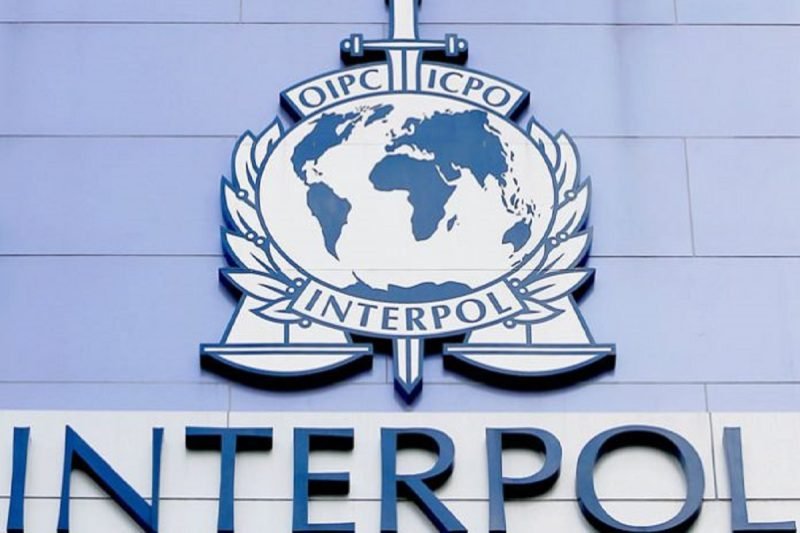Turkey is among the most prolific abusers of INTERPOL’s notice system, a UK parliamentary report has found, warning that authoritarian regimes are increasingly exploiting international policing tools to target exiles and critics abroad.
The report, published July 30 by the Joint Committee on Human Rights, states that it received evidence alleging that many states had conducted transnational repression (TNR) activities on UK soil, listing Turkey along with China, Russia, Iran and others.
“We were told that misuse of INTERPOL Notices was widespread, but that China, Russia, and Turkey were the most prolific abusers of INTERPOL’s Notice system,” the report stated.
INTERPOL’s Red Notice system allows member states to request the arrest or extradition of individuals sought for prosecution. However, rights organizations and international watchdogs have long warned that countries such as Turkey have weaponized the system to pursue political opponents rather than legitimate criminal suspects.
The committee urged the UK government to “put pressure on INTERPOL to reform procedures and call out serial abusers” and recommended establishing a mechanism to alert individuals when a politically motivated notice has been issued against them.
The report also flags Turkey’s specific misuse of INTERPOL’s Stolen and Lost Travel Documents database.
“The Committee also heard that Turkey had begun to misuse Interpol’s Stolen and Lost Travel Documents database by falsely reporting documents as stolen, thereby facilitating the return of targeted individuals,” it says.
Since a coup attempt in July 2016, Turkey’s repression of political dissidents has expanded into a global phenomenon, marked by systematic efforts to silence critics and dissidents overseas. The administration of President Recep Tayyip Erdoğan has employed a range of coercive tactics, including illegal renditions, spying, diplomatic pressure and the misuse of international legal mechanisms, including INTERPOL.
A key pillar of this strategy is the abduction and forced repatriation of dissidents, particularly those affiliated with the faith-based Gülen movement, inspired by the late Muslim cleric Fethullah Gülen. As of 2024 the National Intelligence Organization (MİT) has orchestrated over 118 renditions since 2016, frequently bypassing legal norms with the cooperation of host governments.
President Erdoğan has been targeting followers of the Gülen movement since corruption investigations revealed in 2013 implicated then-prime minister Erdoğan as well as some of his family members and inner circle.
Dismissing the investigations as a Gülenist coup and a conspiracy against his government, Erdoğan began to target the movement’s members. He designated the movement as a terrorist organization in May 2016 and intensified the crackdown on it following the abortive putsch in July of the same year that he accused Gülen of masterminding. The movement strongly denies involvement in the coup attempt or any terrorist activity.
One of the most alarming cases this year involved the abduction of UN-protected Turkish nationals in Kenya, sparking international condemnation from human rights organizations.
In January Enes Kanter Freedom, an activist and former NBA player, shed further light on Turkey’s transnational repression tactics in testimony before a US congressional subcommittee. He detailed cases of abduction, financial harassment abroad and personal experiences of persecution, including the imprisonment of his father and a $500,000 bounty on his head.
In February Human Rights Watch published a global report on transnational repression and said MIT collaborated with authorities in countries with weak rule of law frameworks for the forced return of dissidents.
In April the US State Department published its annual human rights report on Turkey, which included the Turkish government’s transnational repression tactics to suppress its critics living overseas. “The government engaged in a worldwide effort to apprehend suspected members of the Gulen movement,” the report said. “There were credible reports the government exerted bilateral pressure on other countries to take adverse action against specific individuals, at times without due process.”
In December an article by The Washington Post detailed how Turkey adopted post-9/11 US counterterrorism tactics to target exiles, particularly members of the Gülen movement.
Beyond forced renditions, Turkey has leveraged diplomatic and economic pressure to secure the transfer of Gülen-linked schools to Turkey’s state-run Maarif Foundation, facilitating the transfer of schools in Kyrgyzstan and Burkina Faso in 2024. Turkey has seized control of 232 Gülen-affiliated institutions across 21 countries since 2016.
Espionage and surveillance remain central to Ankara’s repression tactics. Turkish intelligence operatives have been reported monitoring protests and gatherings in Western countries, including France, Germany and the United States. Leaked documents reveal that Turkish embassies continue to serve as intelligence-gathering hubs, tracking activists and journalists critical of Erdoğan’s policies.















